
The Way We
Are Now 2021
Singles and couples in the UK today
The Way We
Are Now 2021

Forewords 3
Aidan Jones, Relate CEO 3
Romain Bertrand, VP International at eharmony 4
Love yourself – the importance of self-esteem 5
Being single in 2021 – the rise of the self-help generation? 7
Condent singles looking to nd ‘the one’ 8
Thoughts about sex 9
Tips for building self-esteem 10
Key ndings infographic 11
The state of Britain’s couple relationships 13
Speeding up milestones 14
The longer-term eects of the pandemic on relationships 15
Tips for improving your relationship 16
Conclusion 17
Help with relationships, self-esteem and dating 18
Contents
2The Way We Are Now 2021
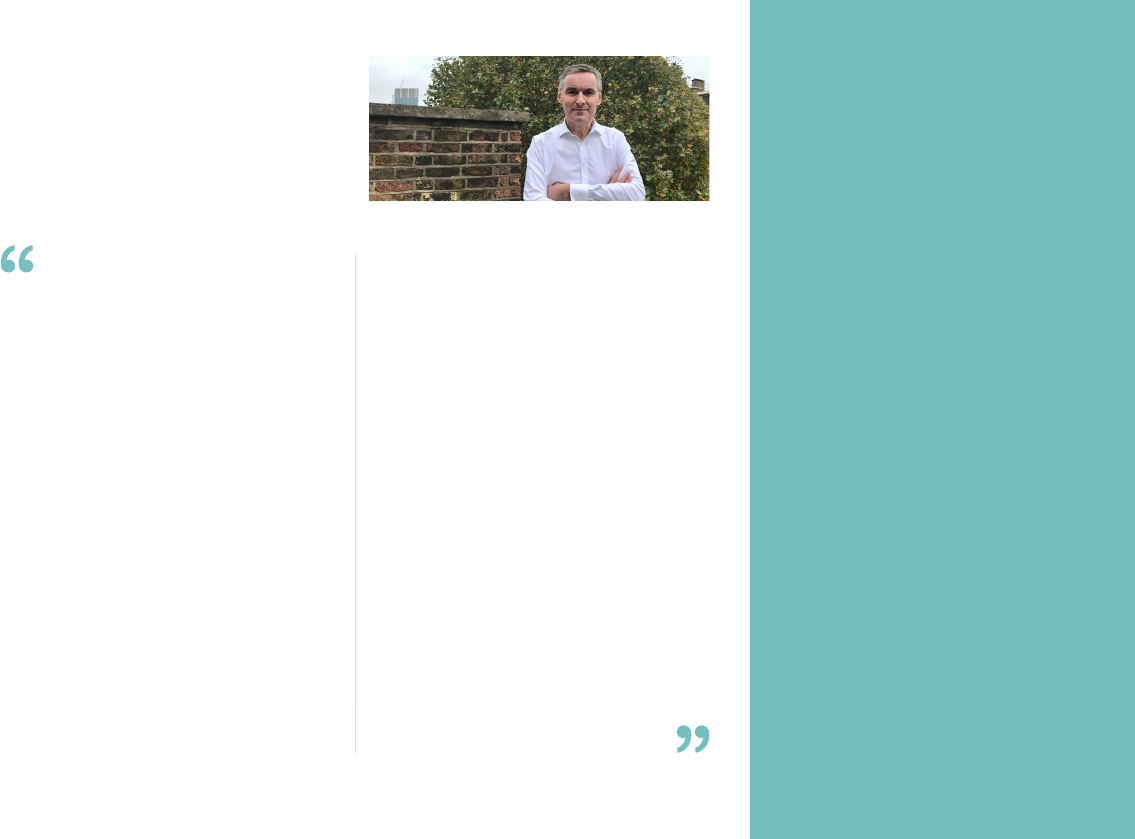
Foreword
The past year has been extremely
challenging in so many dierent ways.
Whether single or in a relationship, long
periods of lockdown have had a huge
impact on many people’s wellbeing and
Relate counsellors have worked tirelessly
supporting individuals, couples and
families through this extraordinary time.
As restrictions li and the world begins
to open up again, many of us are excited
to reconnect with family, partners and
friends. But some people are coming out
of the pandemic feeling like their self-
esteem has deteriorated. And with almost
two thirds of our survey respondents
agreeing that self-esteem and romantic
success are linked, we wanted to explore
further how single people and couples
are feeling about their relationships and
themselves at this moment in time.
We’re proud to be launching this research
during Relationships Week 2021.
Sometimes we’re so focused on other
people that we forget to pay attention to
arguably the most important relationship
of all: the one with ourselves. That’s why
this year our theme for the Week is ‘love
yourself’ – because building your own
self-esteem, acknowledging what you
need and sometimes just ‘being kinder’
to yourself can have a fundamental and
positive impact on your relationships and
wellbeing.
If you’re aected by any issues raised in
this report, please see the final page for
a list of services and resources. We’re
grateful to eharmony for making this
research possible during what is likely to
be a pivotal societal moment.
Aidan Jones
Relate CEO, July 2021
Methodology
We polled over three thousand
people across Britain. This included
a nationally representative sample
of 2,002 UK adults (18+) and an
additional boosted sample of
1,008 people identifying as single.
The polling was undertaken by
Censuswide and fieldwork was
carried out between 28 May – 4
June 2021.
To add further insight from the work
which Relate does with both single
people and those in relationships,
we undertook qualitative research
(online focus group) with Relate
counsellors to help inform the
polling and supplement the
quantitative data.
We also reviewed web data from
Relate’s site relate.org.uk and data
from Relate’s services from between
February 2020 and May 2021.
The Way We Are Now 2021 3
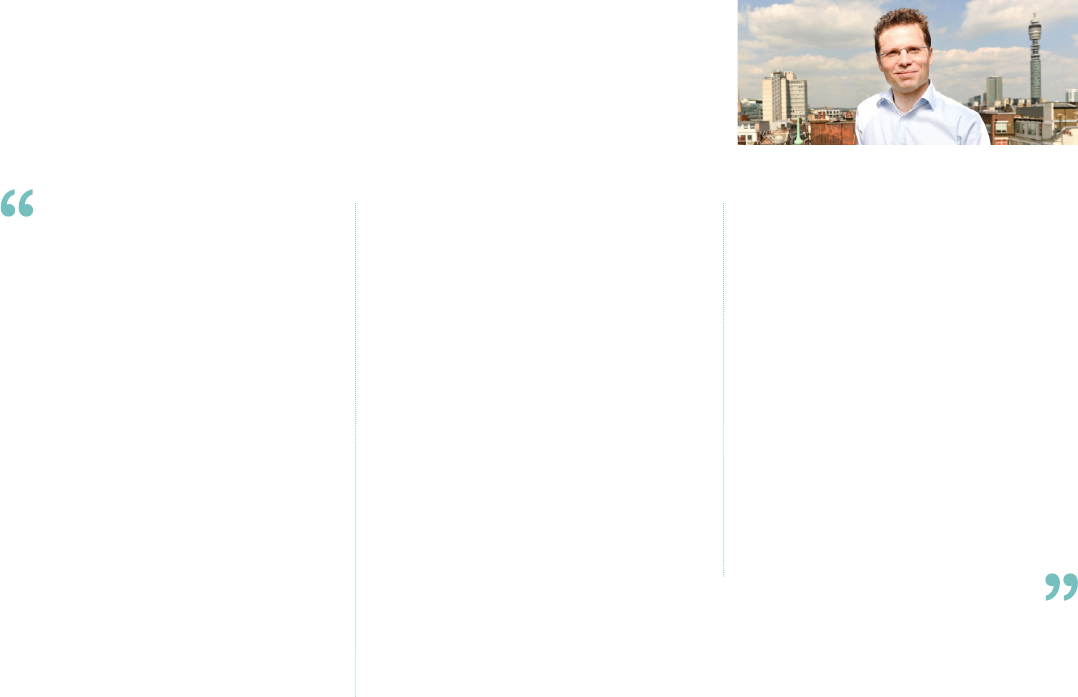
Diicult times naturally make us
reflect on ourselves and the world around
us. Many of us have had a lot more time to
consider what we want from life, whether
that’s in our careers, way of living, or our
romantic relationships.
The hardships of lockdown have been
a test for many couples in the last
18 months. It either led to a greater
appreciation of one another due to
spending more time together or brought
to light existing diiculties that needed to
be carefully navigated. This pressure has
produced positive life changes in some
cases, with milestones like getting engaged
and planning a family brought forward.
Meanwhile for single people, a largely
enforced break from dating ‘in real life’
presented a unique opportunity. Many
Foreword
Romain Bertrand
VP International at eharmony, July 2021
"Around a third (30%) of single people in our survey said they have made
more eort to learn from previous mistakes in relationships or recognise
unhealthy romantic patterns than they did before the Covid-19 pandemic."
took the time to get to know one another
digitally – helped by the successful launch
of our Video Date feature – whilst others
took a step back to consider what they
really want to accomplish from a new
relationship.
We’ve seen a lot of singles come out of the
pandemic a little nervous about dating in
person again, but committed to finding
more meaningful relationships. This is
evidenced in the fact that around a third
(30%) of single people in our survey said
they have made more eort to learn from
previous mistakes in relationships or
recognise unhealthy romantic patterns
than they did before the Covid-19
pandemic.
At eharmony, we know that for two
people to really work together they ideally
need to share core values and personality
traits, and we hope that the opportunity
for reflection has helped single people
appreciate key aspects of this truth.
As we enter freer times, it will be
fascinating to observe new dating
patterns. Above all, whether you’re
searching for new love or cultivating your
relationship across the years ahead, we
sincerely hope you enjoy the journey.
4The Way We Are Now 2021

Love yourself – the
importance of self-esteem
The link between self-esteem and
romantic success has been the focus of
many previous research studies.
One study found evidence to suggest
that high self-esteem is beneficial in
romantic relationships and furthermore
that high self-esteem has a positive eect
on the partner’s happiness with the
relationship.
2
Another study researched many dierent
types of relationships including parents
and peers, romantic relationships
and those between colleagues to find
that self-esteem enhanced the quality
of relationships and having good
relationships seems to boost self-esteem.
This was true for both women and men,
across all age groups sampled and across
dierent ethnicities.
3
There’s no denying that the Covid-19
pandemic has had a huge impact on us
all, whether in a relationship or single.
We’ve seen the pandemic seriously
test people and it’s easy to then seek
validation from others.
Almost a quarter (23%) of UK adults say
that their self-esteem has decreased
4
since before Covid-19 with women (30%)
feeling this more so than men (15%) and
single people (27%) feeling this more
significantly.
A key finding from our research shows that just under two thirds
(64%) of UK adults agree
1
that self-esteem is linked to success in a
romantic relationship, with this figure jumping to three quarters
(75%) of those aged 1824 and 78% of those aged 2534.
1 This finding combines respondents who said ‘strongly
agree’ or ‘somewhat agree’
2 Erol, Ruth & Orth, Ulrich. (2016). Self-Esteem and
the Quality of Romantic Relationships. European
Psychologist. 21. 274-283. 10.1027/1016-9040/a000259
3 H Harris, M. A., & Orth, U. (2019, September 26). The
Link Between Self-Esteem and Social Relationships:
A Meta-Analysis of Longitudinal Studies. Journal of
Personality and Social Psychology. Advance online
publication. http://dx.doi.org/10.1037/pspp0000265
4 This finding combines respondents who said
‘somewhat decreased’ or ‘significantly decreased’
5The Way We Are Now 2021
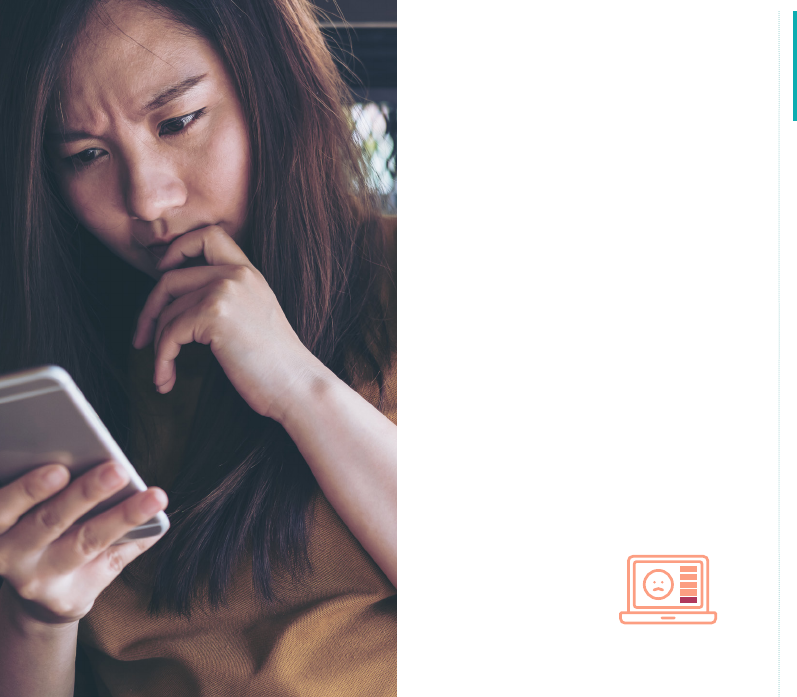
The reasons why people feel this way are
varied and include:
• not being able to see family and friends
(48%);
• money worries (42%);
• not prioritising physical health (40%).
We all know the power of social media and
one in five (20%) respondents whose self-
esteem has decreased compared to pre-
pandemic say that comparing themselves
to others online has a negative impact
as to how they feel about themselves.
Interestingly this was nearly twice as
common for women (24%) compared to
men (13%).
“People’s anxieties are definitely higher
as we come out of lockdown. I’m hearing
from a lot of people who want to work on
themselves.”
– Gurpreet Singh, Relate Counsellor
These findings are supported by Relate’s
own web data with a page on relate.org.uk
focusing on low self-esteem seeing a 125%
increase in views in April and May 2021
compared to the previous month.
5
However it’s not all doom and gloom. One
in five (20%) UK adults have come out of
lockdown with increased
self-esteem.
6
They attribute this to:
• paying more attention to their physical
health (33%);
• taking up a new hobby (23%);
• realising how strong they are aer
getting through a pandemic (24%).
5 This finding is based on a 125% increase in page views
between 25 April – 24 May 2021 compared to period of
26 March – 24 April 2021.
6 This finding combines respondents who said
‘somewhat increased’ or ‘significantly increased’.
20%
of respondents say comparing
themselves to others online
had a negative impact
6The Way We Are Now 2021
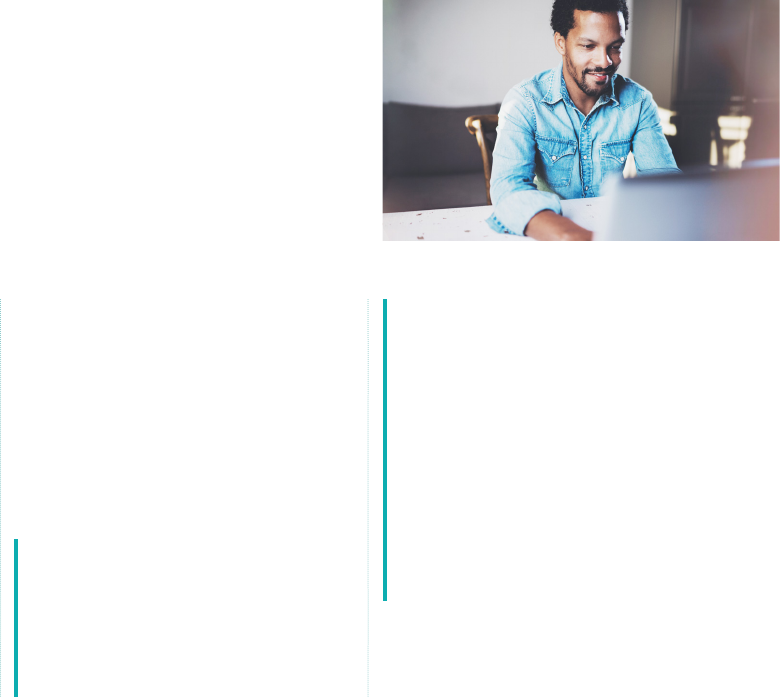
Being single in 2021 – the rise
of the self-help generation?
It seems that self-help strategies
employed during lockdown have fuelled
more single people feeling empowered
and ready to find love.
We found that almost a third (30%) of
respondents have made more eort to
learn from previous mistakes and/or
recognise unhealthy romantic patterns
than they had before the pandemic.
It’s encouraging to see almost a quarter
(23%) are taking proactive steps and
using self-help resources – online quizzes,
self-help books, advice from wellbeing
influencers, podcasts – more frequently.
In particular, Gen Z and Millennial singles
(33% aged 18–24 and 31% aged 25–34) are
accessing self-help tools more coming out
of the pandemic.
In addition Relate’s own data shows that
the number of 18–34 year olds attending
counselling on their own at Relate
has increased by 7% since before the
pandemic.
7
“Social media can be a toxic place,
sometimes being so unhelpful around
unrealistic body imagery, for example.
However, some therapy and mental
health-focussed content has become
really helpful for some women…I think
a lot are seeing the odd infographic
or meme and are coming forward
for counselling with an informed
viewpoint, like ‘I think I may have
anxious attachment; I’ve just seen some
information about this’. I also see that
some younger women who, because
of the communities they are joining
online, are far less tolerant of some
negative behaviours from other people. I
feel there’s more awareness and more
conversations are happening for younger
women about what is and isn’t okay.”
– Natasha Silverman, Relate Counsellor
Relate counsellors told us that more often they are seeing younger
clients accessing information and help online. We wanted to
unpack this further to find out how widely single people are
accessing self-help tools and looking to learn from previous
relationships to make more informed decisions for their future.
7 This finding compares the monthly averages of 18–34
year olds accessing Relate’s counselling services on
their own from February 2020 to May 2021.
7The Way We Are Now 2021
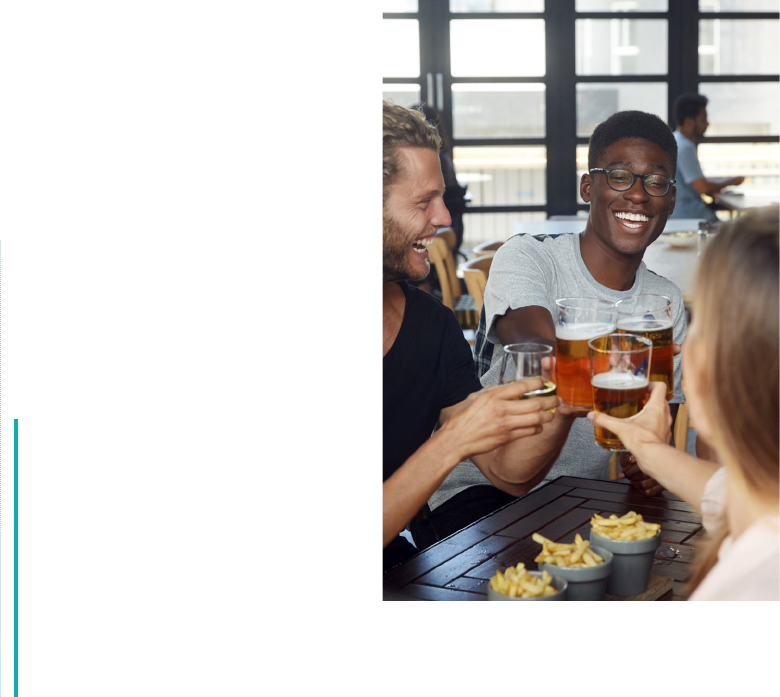
Confident singles
looking to find ‘the one’
Even last year, during the initial
lockdown, there was an evident surge
towards intimate connection. eharmony
registrations were up 60% year-on-year
in the first week of April 2020, mirroring
the level of growth seen in January and
February which is typically peak season.
Messages on the app increased by just
over half (51%) too.
9
Today, the reasons for wanting to dust o
the dating shoes are varied. A quarter of
single people (25%) say that that since
restrictions have eased there’s lots of
choice on the dating scene and they are
keen to date all types of people. Over
a quarter (28%) of respondents claim
that following the pandemic they have
a better sense of what they need from
A key finding from our survey shows that as restrictions
lift a large number of single people (42%) are keen to enter
into romantic relationships as we emerge from lockdown.
8
a relationship, with 24% of people ‘not
wanting to waste any more time’ on the
dating front. A large number of single
people (39%) said that coming out of
lockdown they are open to meeting ‘the
one’.
“Some of the conversations I’ve been
having with some of my younger, single,
female clients are around ‘I’m not wasting
time now, I’m not going to date someone
for a long period of time who isn’t right for
me; I’m not going to hope they become
the person that I need. These are my
values, this is what I’m looking for and if I
can’t find that in him, or her, then ‘next!’ I
have noticed that there are a lot of ‘irons
in the fire’ for some clients at the moment.”
– Natasha Silverman, Relate Counsellor
8 Respondents said they were keen to enter into ‘short
but intense’ romantic relationships as lockdown lis.
9 According to analysis of eharmony profile and
communication data.
8The Way We Are Now 2021

Thoughts about sex
We found:
• 10% say that they enjoy masturbation
more than sex with a partner;
• 25% think they are out of practice in the
bedroom – slightly more so for women
(27%) than for men (24%);
• 13% don’t feel ready to be intimate again;
• 8% are now more open to exploring
same-sex relationships than they were
before the pandemic.
“Lockdown was hard for a lot of people,
but it also gave singles the time to work
out who they are and what they’re
looking for in a partner. And, while
it’s only natural that some people
feel nervous about having sex again,
lockdown has also created a boom in
more meaningful dating, with people
With more people looking for love
and lockdown lifting, we wanted
to delve deeper into single
people’s thoughts about sex.
keen to find real substance. At eharmony,
we’ve seen this kind of thing happening
before – traumatic environmental events
invariably lead to spikes in dating and
people wanting to connect deeply with
each other.”
– eharmony relationship expert Rachael Lloyd
25%
of respondents
think they are
out of practice
in the bedroom
9The Way We Are Now 2021

eharmony’s and Relate’s
tips for building self-esteem
Next time you aren’t perfect,
acknowledge it, accept it
and then let it go. Loving and
accepting ourselves is one of
the hardest things we can learn
to do. It’s about accepting our
own flaws and failures without
letting them define us.
Try talking to yourself how
you’d talk to someone else.
In all likelihood you’d probably
be a lot kinder to someone else
who came to you with a problem
than you are to yourself.
Take things at the right pace
for you. Whether that’s dating
someone, reconnecting with
family and friends or just getting
out and about again; we’re all at
dierent stages coming out of
lockdown and that’s okay.
Make yourself a priority. Carve
out time to do the things you love.
Self-care is an important part of
looking aer your wellbeing.
Talk to someone. If you’re
struggling coming out of the
pandemic, know that you’re not
alone. Find someone to talk to
about it. This could be a partner,
friend or a counsellor.
You don’t always need external
validation. Sometimes our own
recognition and acceptance is
enough.
Step outside of your comfort
zone. You’re capable of more than
you think!
Remember how to have fun. The
past year has been challenging for
so many people. Try to do things
which you enjoy and see the
people who make you happy.
10The Way We Are Now 2021
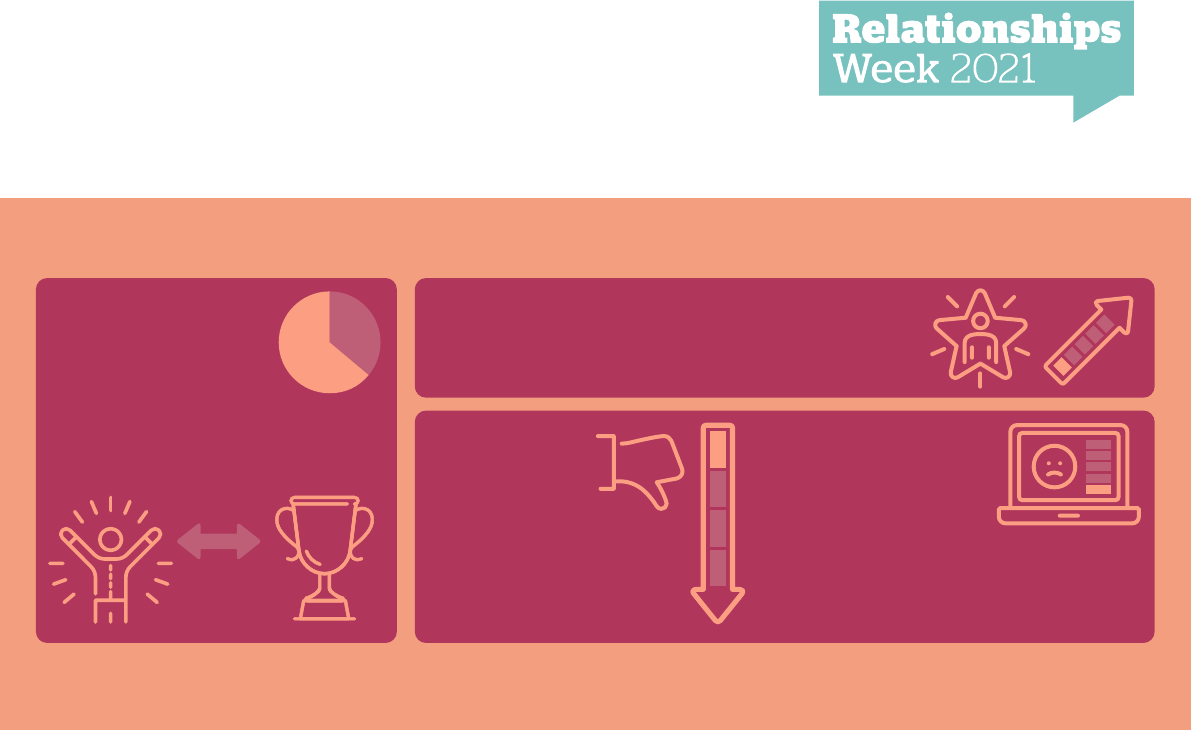
#LoveYourself
Key findings
Key findings from Relate’s and eharmony’s
The Way We Are Now 2021
report, released during Relationships Week (511 July). The theme of
the Week is ‘love yourself’ and the polling focuses on the state of self-
esteem, love and relationships as we emerge from the pandemic.
Based on nationally representative polling of 2,002 UK adults (18+).
A boost of 1,008 UK singles was added to this sample.
64%
of UK adults think
that self-esteem and
romantic success are linked
20%
of UK adults feel that their
self-esteem has increased
since pre-pandemic
23%
of respondents feel
that their self-esteem
has decreased since
pre-pandemic
20%
of those whose
self-esteem has decreased say
comparing themselves to others
online had a negative impact
11The Way We Are Now 2021
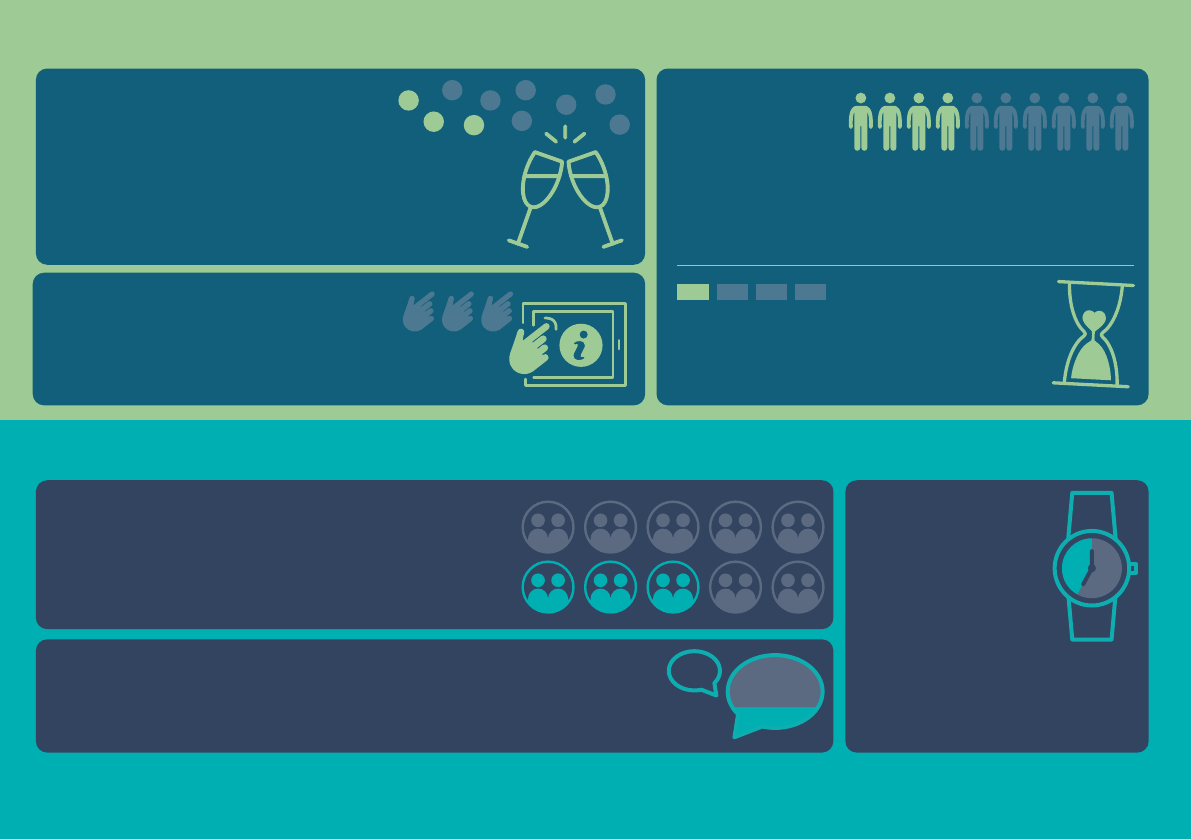
30%
of couples say the quality
of their relationship has
improved since before
the pandemic
42%
of those whose
relationship has
improved equate this to
having more one-to-one
time with their partner
37%
whose relationship has improved said
this was due to having more open and
honest conversations with their partner
Self-help singles
Coming out of lockdown in a relationship*
28%
they now have a better sense of what
they want from a relationship than
they did pre the Covid-19 pandemic
23%
24%
say this is because
they don’t want to
waste any more
time nding love
42%
of single people admit they are entering
short but intense romantic relationships
since restrictions have relaxed
are using more
self-help resources.
*those who have been in a relationship for over a year
Increasing to 33% for Gen Z singles aged 1824
of single
people agree
12The Way We Are Now 2021
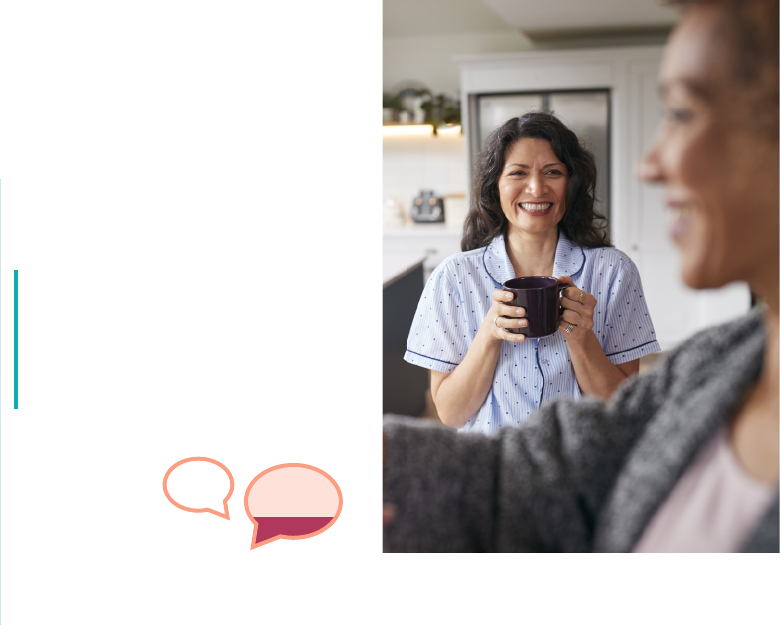
The state of Britain’s couple relationships
We found that 45% of respondents whose
relationship has got better feel like they
are more of a team with their partner
now. Having more valuable time with your
‘other half’ was also seen as a positive
with 42% equating this to having a better
quality relationship overall.
We found in our focus group that
counsellors were seeing a larger number
of people feeling the need to be ‘more
honest’ with their partners and this oen
correlated to life feeling short coming out
of the pandemic.
We delved into this further and found
that 37% of those whose relationships
have improved are having more open and
honest conversations with their partners
and that this in turn is leading to them
seeing an improvement in the quality of
their relationships.
“I’m seeing more people who are feeling
that life is short. So many people have
died and there’s a real sense of mortality
which is driving people to be honest with
themselves but also with their partners.”
– Holly Roberts, Relate Counsellor
There’s been a lot in the media about couples struggling
during lockdown and of course this is the case for some,
however our findings show that close to a third (30%) of
respondents in long-term relationships
10
feel that the quality of
their relationship is actually better
11
than it was pre-pandemic.
10 Sample is those in a relationship for a year or longer.
11 This finding combines respondents who said ‘much
better’ or ‘somewhat better’.
37%
of respondents whose
relationship improved are
having more open and honest
conversations with their partners
13The Way We Are Now 2021

Speeding up milestones
In the next six months, one in ten (10%)
couples want to go on holiday together
for the first time, 7% are planning to
buy a house together and 7% plan to
try for a baby.
A small percentage of respondents (4%)
are planning to say ‘I love you’ to their
partner for the first time. Interestingly
more than half of the respondents who
are planning to move their relationship
onto the next level think that the
pandemic has sped up their plans.
“Ultimately, it’s shared interests, values
and goals that make for a successful
relationship. Lockdown acted as a ‘make
or break’ scenario for many, which is why
I’m not surprised that many couples who
went the distance are now keen to show
their commitment to one another.”
– eharmony relationship expert Rachael Lloyd
For those in a relationship, a significant minority
are keen to take it to the next level.
14The Way We Are Now 2021
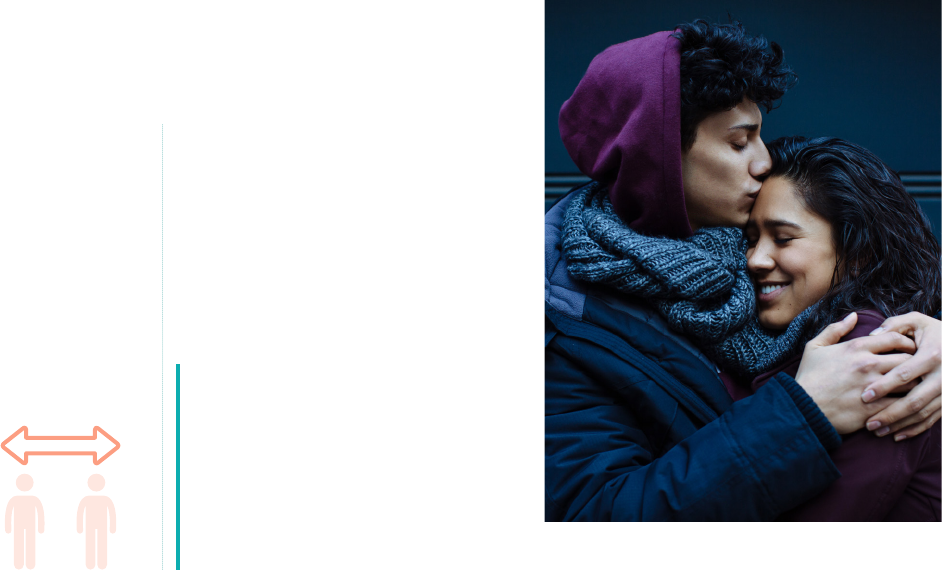
The longer-term effects of the
pandemic on relationships
We found that one in ten (10%)
respondents agreed that having more
time apart due to lockdown liing will
help their relationship and 12% of
those in relationships say that their sex
life has got worse during the pandemic.
It’s also likely that the long-term
eects of Covid-19 on the nation’s
relationships are yet to be seen. Our
focus group found that counsellors
predict many people will still have to
face the longer-term impact of the
pandemic on themselves and on their
relationships in the months and years
to come.
“Some couples found their relationship
improved because the physical
distance between them in their busy
lives had been removed by lockdown…
they were in holiday mode in a way.
So I think it’s going to be interesting
to see what happens when all of those
obstacles come flying back again.”
– Natasha Silverman, Relate Counsellor
As we come out of a third lockdown and the world begins to open up,
some of those in long-term relationships (13%)
12
are left feeling that
the quality of their relationship has worsened through the pandemic.
12 Sample is for those in a relationship for a year
or longer.
10%
of respondents
agreed that having
more time apart
due to lockdown
liing will help
their relationship
15The Way We Are Now 2021

eharmony’s and Relate’s tips for
improving your relationship in 2021
Try to stop comparing your
relationship to other people’s
or at least notice when you’re
doing it. Every relationship is
unique and no relationship is
perfect.
Give your relationship the
same care you give your car
or your health with an annual
relationship MOT or health
check. Talk about what you
want from your relationship
now and in the future. Do this
with Relate if it’s hard to do by
yourselves.
Focus on keeping your
commitments and promises
to yourself and to others. This
will help to build trust which is
vital for healthy relationships.
Remember to keep the positives
from lockdown. Enjoyed family
walks or spending more quality
time with your partner over the
past 12 months? Build them into
your routine so that you continue
to do them.
Got something tricky to talk
about? Go out to a quiet café or
better still go for a walk; even
reluctant talkers can find it easier
to speak when not sitting in the
house staring at each other.
It’s really easy to be critical of
your partner especially if you’ve
been together more than normal
due to restrictions. Instead, try
to tell them what you love about
them and all the things they do
that you appreciate. It will be
good for their self-esteem and
your relationship.
Value your independence. Being
independent can improve your
feelings of self-worth. Try doing
new things or have a go at doing
something or making a decision
on your own.
Be honest with yourself. If
something isn’t working, set
time aside to talk about it. If you
need to do this with a third party,
Relate can help.
16The Way We Are Now 2021

Conclusion
“I think there’s a general trend in
which the help of psychologists and
therapists is being sought, including
looking at Relate’s own stats: Relate
has peaks in enquiries post-holidays
and post-Christmas. This shows that
many people get in touch not in the ‘eye
of the storm’, but aer the storm has
passed. If you follow that trend, we’re
still coming out of the storm so the full
impact is yet to come through and I
don’t think we know half of it yet.”
– Gurpreet Singh, Relate Counsellor
It’s clear to see that the
pandemic has had a huge
impact on people’s lives,
health and wellbeing.
And Relate counsellors predict
that the longer-term effects of
Covid-19 on ourselves and our
relationships will continue to
unfold in the coming months
and years.
17The Way We Are Now 2021
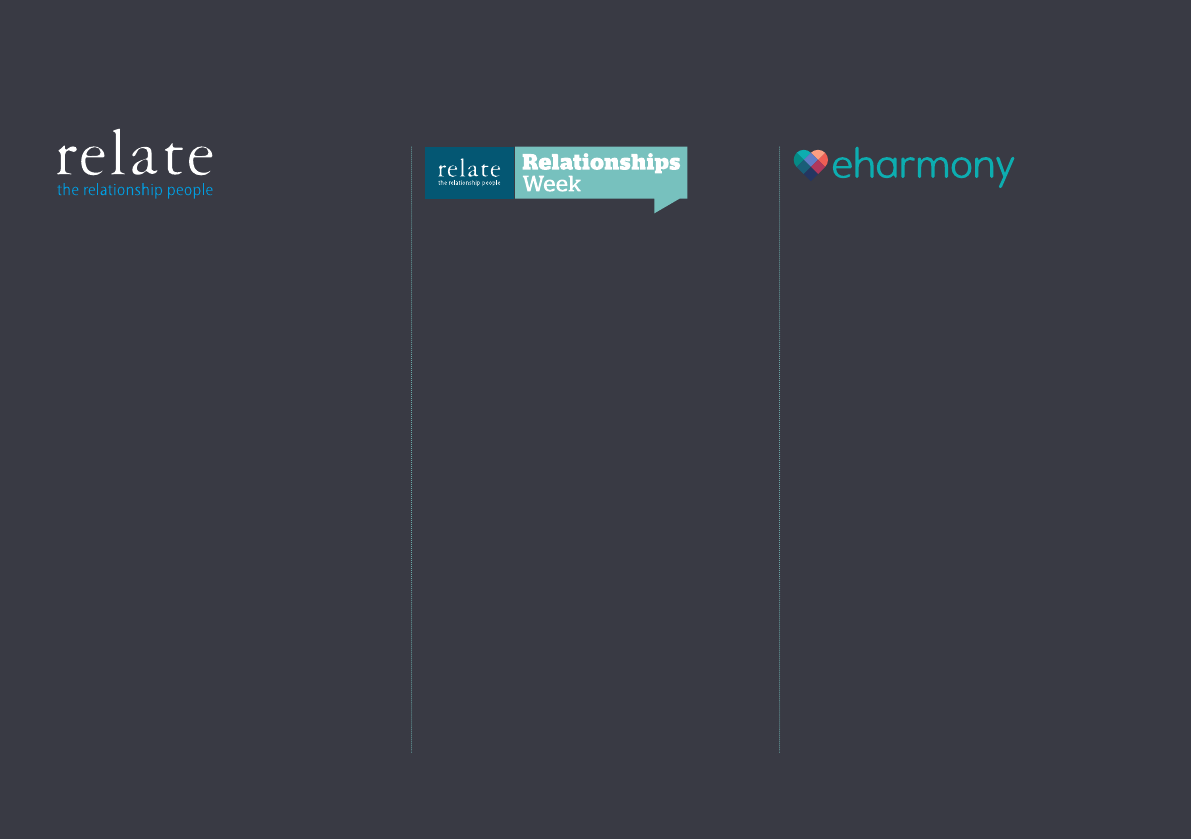
Help with relationships, self-esteem and dating
Relate services
We could all use some extra support
sometimes. Relate has a range of services
which include individual counselling,
relationship counselling for couples
and individuals, family counselling,
mediation, children and young people’s
counselling and sex therapy.
In addition, WebChat oers 30 minute
sessions with a trained counsellor and
Message A Counsellor is an email service
where you get a bespoke reply to a
specific issue.
To find out more about our services and
for a range of online self-help resources
including articles and quizzes, visit
relate.org.uk.
Relationships Week
Relationships Week 2021 will take place
from 5–11 July, bringing together voices
from across the UK to highlight the
importance of healthy relationships in
our lives.
For more information including specific
content on self-esteem visit
relate.org.uk/relationships-week.
eharmony services
Real love remains at the heart of everything
we do at eharmony. In an increasingly
fast-paced dating culture, we take a
more bespoke and supportive approach
to creating relationships. Our unique
Compatibility Matching System brings
together like-minded singles who share
core values and personality traits, which
are key indicators of relationship success.
We’re constantly evolving our matching
system, designed by psychologists, which
measures each member’s profile across
32 dimensions of compatibility – factoring
in traits such as kindness, openness, and
communication style. The results speak for
themselves – every 14 minutes someone
finds love on eharmony.
Take our virtual tour at eharmony.co.uk.
